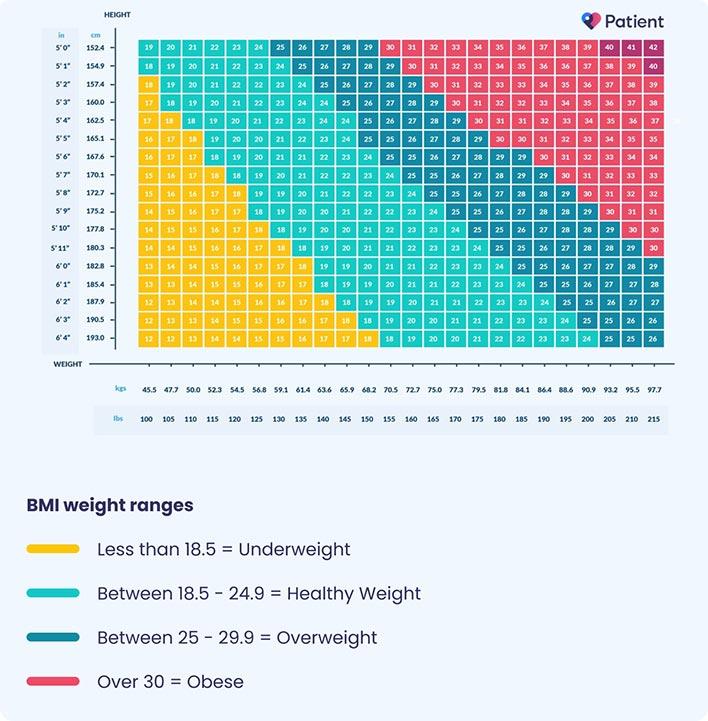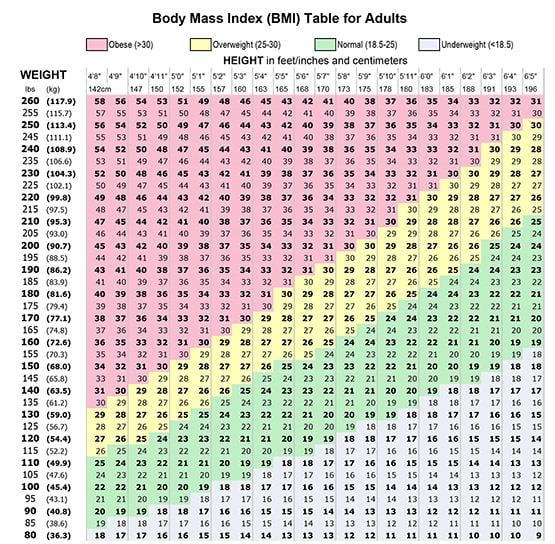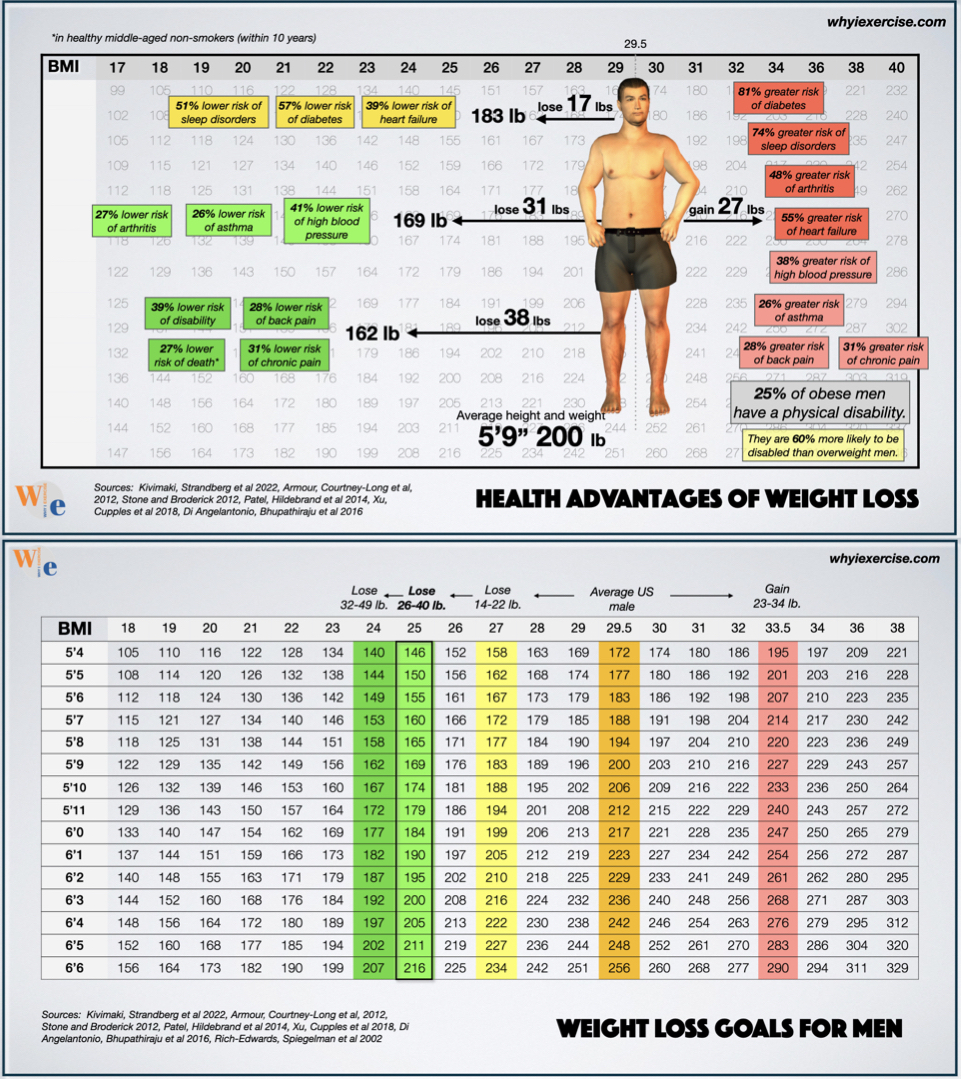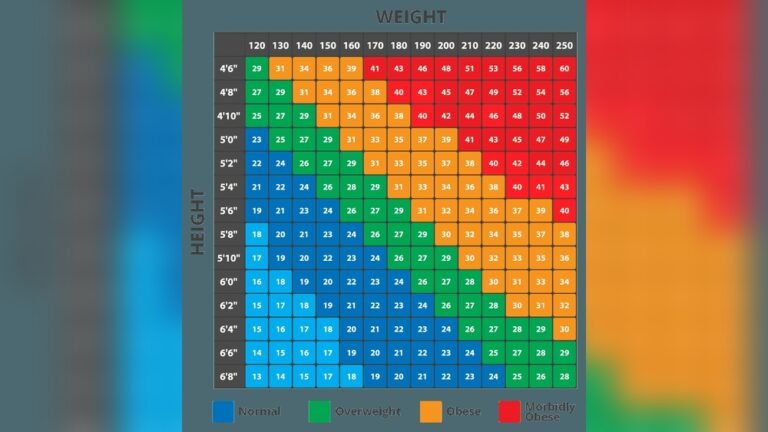Are you curious about what a healthy BMI means for you as a man? Understanding your Body Mass Index (BMI) is a simple yet powerful way to check if your weight is in a good range for your height.
But here’s the catch—BMI is more than just a number. It can guide you toward better health, boost your confidence, and help you avoid risks linked to being underweight or overweight. You’ll discover what a healthy BMI range looks like for men, why age and muscle mass matter, and how to use this information to take control of your wellbeing.
Keep reading to learn how your BMI can be a key step on your path to a stronger, healthier you.

Credit: patient.info
Bmi Basics For Men
Understanding BMI basics helps men monitor their health effectively. BMI stands for Body Mass Index. It measures body fat based on height and weight. This simple tool can guide men toward a healthy weight.
What Bmi Indicates
BMI shows if weight is in a healthy range. A healthy BMI reduces risks of heart disease, diabetes, and other conditions. It helps identify underweight, normal weight, overweight, or obesity categories. This makes it easier to track health progress over time.
Bmi Ranges By Age
BMI ranges can differ slightly with age. Younger men often have lower ideal BMI numbers. Older men may have a higher healthy BMI due to natural body changes. Age affects muscle mass, fat distribution, and bone density. These factors shift the BMI range considered healthy.
Limitations Of Bmi
BMI is a screening tool, not a full health measure. It cannot separate muscle from fat. Men with high muscle mass may have a high BMI but low body fat. Bone density and body shape also affect BMI results. Always combine BMI with other health checks for best insight.
Factors Affecting Male Bmi
Body Mass Index (BMI) is a common way to estimate healthy body weight. For males, several factors influence BMI beyond simple height and weight measurements. Understanding these factors helps in interpreting BMI more accurately. This knowledge guides better health decisions.
Muscle Mass And Bone Density
Muscle weighs more than fat. Men with high muscle mass may have a higher BMI but low body fat. Strong bones also add weight. Athletes and active men often show this pattern. BMI alone cannot distinguish between muscle and fat.
Ethnicity And Genetic Factors
Different ethnic groups have unique body compositions. Some men naturally carry more muscle or fat. Genetic traits affect fat distribution and metabolism. These differences impact BMI and health risks. A healthy BMI range might vary by ethnicity.
Age-related Changes
As men age, muscle mass usually decreases. Fat tends to increase, even if weight stays stable. Bone density can also decline, lowering overall weight. These changes affect BMI readings. Age must be considered to assess health accurately.
Achieving A Healthy Bmi
Achieving a healthy BMI is a key step toward better health and well-being. It helps reduce risks of heart disease, diabetes, and other health problems. Maintaining a healthy BMI requires a mix of good nutrition, regular exercise, and positive lifestyle choices. Small changes can lead to lasting results.
Balanced Nutrition Tips
Eat a variety of foods to get all necessary nutrients. Choose fruits, vegetables, whole grains, and lean proteins. Limit sugary drinks and processed foods. Control portion sizes to avoid overeating. Drink plenty of water to stay hydrated. Planning meals helps keep your diet on track.
Effective Exercise Routines
Include both cardio and strength training in your exercise plan. Cardio improves heart health and burns calories. Strength training builds muscle and boosts metabolism. Aim for at least 150 minutes of moderate activity each week. Find activities you enjoy to stay motivated. Consistency is more important than intensity.
Lifestyle Habits For Weight Control
Get enough sleep to support metabolism and appetite control. Manage stress with relaxation techniques like deep breathing or meditation. Avoid smoking and limit alcohol intake. Stay active throughout the day by walking or taking breaks from sitting. Track your progress to stay focused on your goals.
Monitoring And Adjusting Bmi
Monitoring and adjusting BMI is essential for maintaining a healthy weight and overall wellness. Regular checks help you understand how your body changes over time. Tracking these changes can guide you to make better lifestyle choices. It also helps detect any sudden or unhealthy weight shifts early. Staying aware of your BMI supports long-term health goals.
Using Bmi Calculators
BMI calculators offer a quick way to estimate your body mass index. You just need to enter your height and weight. Many online tools are free and easy to use. These calculators provide instant results to show if you are underweight, normal, overweight, or obese. Use these tools regularly to keep track of your health status.
When To Seek Medical Advice
Consult a doctor if your BMI is very high or low. Sudden weight changes or symptoms like fatigue require professional help. A healthcare provider can assess other health factors beyond BMI. They may suggest tests or create a personalized plan. Always seek advice before starting new diets or exercises.
Tracking Progress Over Time
Keep a record of your BMI measurements to observe trends. Note your weight and height periodically for accurate tracking. Small, consistent changes over time are healthier than rapid shifts. Tracking progress motivates you to maintain or improve your lifestyle. It also helps adjust your goals based on real data.
Bmi And Overall Health
BMI, or Body Mass Index, is a simple tool to estimate body fat. It helps assess if a male’s weight is healthy for his height. Understanding BMI is important because it links closely to overall health. A healthy BMI can indicate lower risks of many diseases. This section explains how BMI affects heart health, metabolic conditions, and mental well-being.
Impact On Heart Health
A healthy BMI reduces the risk of heart disease. Excess weight strains the heart and blood vessels. This strain can lead to high blood pressure and clogged arteries. Maintaining a healthy BMI supports better blood flow and heart function. Men with normal BMI often experience fewer heart problems.
Relation To Metabolic Conditions
BMI also relates to conditions like diabetes and cholesterol. Higher BMI increases the chance of insulin resistance. This resistance can cause type 2 diabetes over time. A balanced BMI helps regulate blood sugar and fat levels. Healthy weight supports better metabolism and lowers disease risks.
Mental Well-being And Body Image
BMI influences how men feel about their bodies. A healthy BMI often boosts confidence and self-esteem. Feeling good about body image improves mental health. Men with unhealthy BMI may face stress or anxiety. Keeping a balanced BMI supports both body and mind health.

Credit: www.ramsayhealth.co.uk
Common Myths About Bmi
BMI, or Body Mass Index, is a common tool used to estimate healthy weight. Many people believe BMI gives a full picture of health. This is not always true. Several myths surround BMI, especially about men’s health. Understanding these myths helps avoid wrong assumptions about fitness and weight.
Bmi Vs. Body Fat Percentage
BMI measures weight against height but not body fat. A man with high muscle mass may have a high BMI but low body fat. Body fat percentage shows how much fat is in the body. It gives a clearer idea of health than BMI alone. Athletes often have a high BMI but healthy body fat levels.
Why Bmi Isn’t Always Accurate
BMI does not consider muscle, bone density, or age. Older men may have less muscle and more fat but the same BMI. Taller men might appear overweight by BMI but are healthy. BMI is a simple tool, not a medical diagnosis. Always use BMI with other health checks for better accuracy.
Debunking Weight And Fitness Stereotypes
Many believe a normal BMI means someone is fit and healthy. This is not always true. A man can have a healthy BMI but poor fitness or diet. Others with a high BMI may be strong and active. Fitness depends on many factors beyond weight. Avoid judging health only by BMI numbers.

Credit: www.whyiexercise.com
Conclusion
Maintaining a healthy BMI helps support overall male health and wellbeing. Remember, BMI is a helpful guide, not a full health picture. Factors like muscle and age affect your ideal weight. Regular check-ups with a healthcare provider give the best advice.
Stay active, eat balanced meals, and track your BMI for a healthier life. Simple steps can lead to lasting benefits. Your health matters every day.



